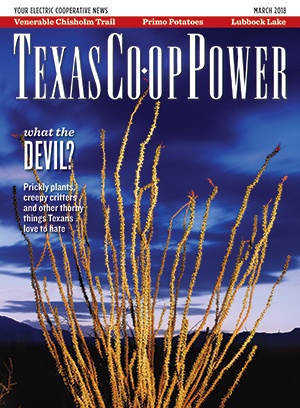This month, I found some insight to share from Co-op Historian Ted Case, who is the executive director of the Oregon Rural Electric Cooperative Association. His books, Power Plays and Poles, Wires and War, describe the effect electric co-ops have had on national policy since the 1930s. Case recently talked with Paul Wesslund from the National Rural Electric Cooperative Association about what the history of electric co-ops means for members.
Q: Has researching these books changed your view of electric co-ops?
Case: I have a greater appreciation. The core values of what co-ops do are the same as in 1936 when the Rural Electrification Act became law.
Q: What are those values?
Case: I think of one particular co-op: It has several thousand people who come to the office to pay their bills. They don’t need to do that—it’s a lot easier to just toss the bill in the mail or pay online. But they go in because the co-op has this value beyond just electric service. It really is the center of everything in the town and the economic driver. The co-op is not just a power company; it’s the center of their world.
Q: Does that kind of relationship really apply in this increasingly high-tech world in a high-tech industry?
Case: As I travel the country, I’m blown away by the technical acumen and the vision and the strategic abilities of co-op leaders to see into the future.
Q: How does the co-op business model relate to the basic mission of keeping electricity reliable and affordable?
Case: Co-ops are very competitive in rates, service and reliability. It comes back to that local connection. Members know the folks who work at the co-op and the directors. There’s terrific member service getting the lights back on after an outage.
Q: One characteristic of electric co-ops is their not-for-profit nature. How does that affect the members?
Case: A lot. Increasingly, institutions have fallen from grace because everybody believes there’s this profit motive that’s just out to milk you, and there’s such a lack of trust in a lot of the large institutions. Being a not-for-profit is an attractive feature that means decisions are based on the best interests of the co-op and the consumer.
Q: So what should members know about their electric co-op?
Case: Members have the ability to influence their co-op more than they ever imagined. Directors are really interested in hearing from folks. When somebody at a co-op annual meeting has a point to make, the boards take it seriously. The co-op’s management takes it seriously. That’s the value.


